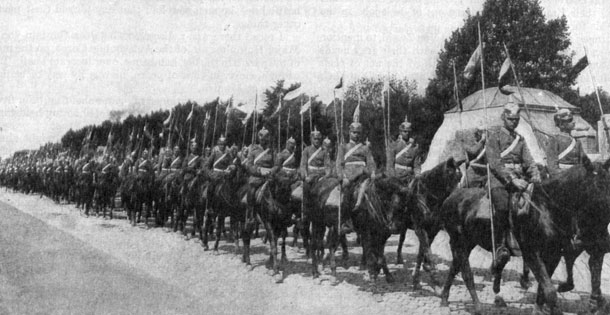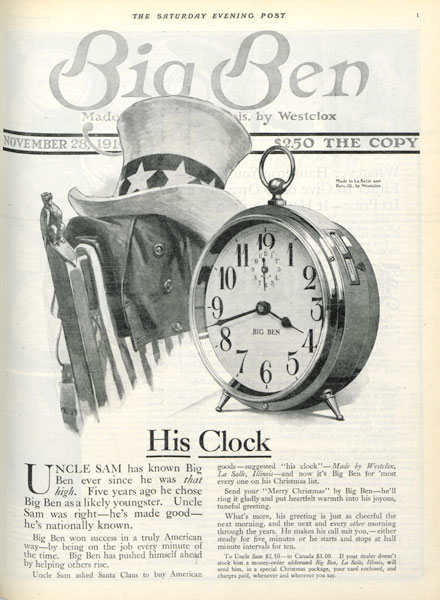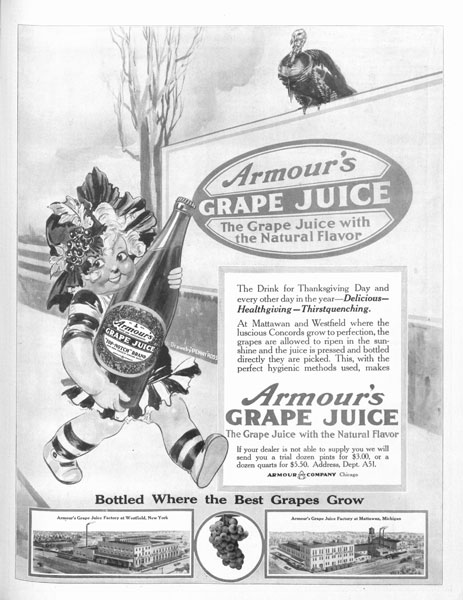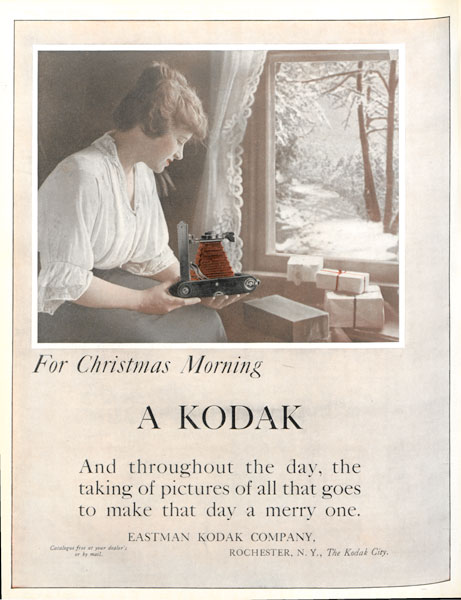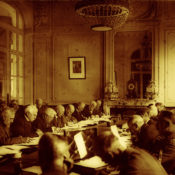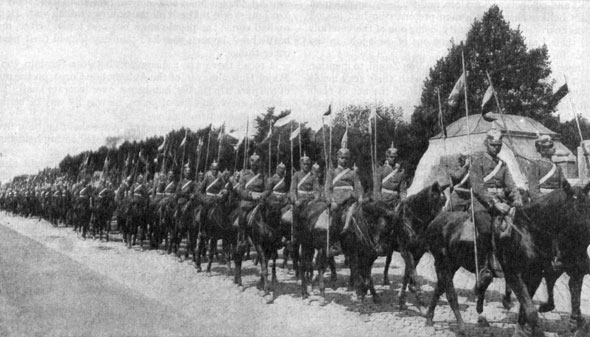
In the November 28, 1914, issue: German army cooks scoop up war medals and journalists fight censorship and military officers for the truth.
Three Generals and a Cook
By Irvin S. Cobb
Still observing the war from the German side, Cobb spent a week socializing with high-ranking officers in the Kaiser’s army. He was particularly impressed by a common soldier who had earned the Iron Cross decoration. Cobb was even more surprised that the medal had been awarded to a cook.
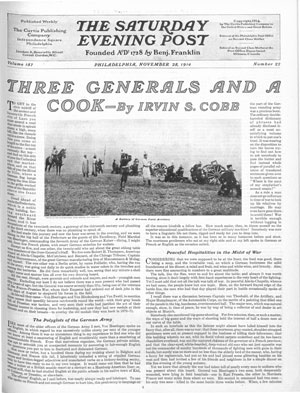
“While the officer rattled the steel lids the cook himself stood rigidly alongside, with his fingers touching the seams of his trousers. Seen by the glare of his own fire he seemed a clod, fit only to make soups and feed a fire box. But by that same flickery light I saw … on the breast of his grease-spattered gray blouse … a black-and-white ribbon with a black-and-white Maltese cross fastened to it. I marveled that a company cook should wear the Iron Cross of the second class and I asked the captain about it. He laughed at the wonder that was evident in my tones.
“‘If you will look more closely,’ he said, ‘you will see that a good many of our cooks already have won the Iron Cross since this war began, and a good many others will yet win it — if they live. We have no braver men in our army than these fellows. They go into the trenches at least twice a day, under the hottest fire sometimes, to carry hot coffee and hot food to the soldiers who fight. A good many of them have already been killed.
“‘Only the other day … two of our cooks at daybreak went so far forward with their wagon that they were almost inside the enemy’s lines. Sixteen bewildered Frenchmen who had got separated from their company … thought the cook wagon with its short smoke funnel and its steel fire box was a new kind of machine gun, and they threw down their guns and surrendered. The two cooks brought their 16 prisoners back to our lines too, but first one of them stood guard over the Frenchmen while the other carried the breakfast coffee to the men who had been all night in the trenches. They are good men, those cooks!’”
“I am in doubt as to which of two men most fitly typifies the spirit of the German Army in this war — the general feeding his men by thousands into the maw of destruction because it is an order, or the pot-wrestling private soldier, the camp cook, going to death with a coffee boiler in his hands — because it is an order.”
The Private War
By Samuel G. Blythe
In modern times, we expect wars to generate a steady stream of new reports from the front lines. But 100 years ago, the military reduced the news stream to a trickle. Every reporter’s dispatch was rigorously censored to remove any information that might aid the enemy or make the military command look bad. And, as Blythe reports, the British and French armies devised several diversions to prevent reporters from reaching the front.
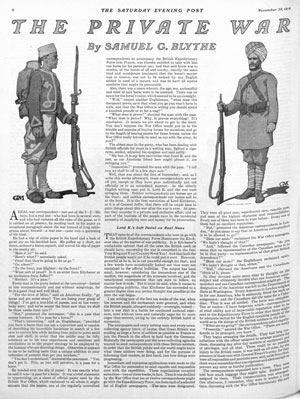
“[British Field Marshall] Kitchener does not recognize any right the public may have to information. … It is Kitchener’s unshakable opinion that all the news the British need; or should have, concerning the war is comprised in the line: Your King and Your Country Need You! And that is all the British people would get if he could put it over. However, powerful as he is, he is not powerful enough for that; and a few words have occasionally leaked out that were not contained in the official bulletins. The output has been small, however, considering the tremendous size of the conflict. …
“Greatly to the astonishment of the British War Office, it was learned that General Joffre, in command of the French troops, strenuously objected to the presence of the English correspondents. It was all very astonishing and very perplexing and very embarrassing. …
“[Some of the more impatient correspondents asked General Joffre about his objections.] ‘Objections?’ was the polite reply. ‘Why, there are no objections on our part, save as we object out of courtesy to, our ally, Great Britain. France will be very happy to have these correspondents with the army; but naturally, if the British authorities think it wiser not to allow them at the front we can do nothing but bow to that decision.’”
“Whereupon the situation became reasonably clear. The British War Office was using the French as the obstacle, and the French were doing the same thing with the British. It was a simple and efficacious case of passing the buck.
“And so it goes. The Press Bureau is press-bureauing; the censors are censoring; and Kitchener, on the British side, and Joffre, on the French side, are seeing to it that not a word is printed about this war which they do not desire to have printed.”
Step into 1914 with a peek at these pages from The Saturday Evening Post 100 years ago.
Become a Saturday Evening Post member and enjoy unlimited access. Subscribe now
